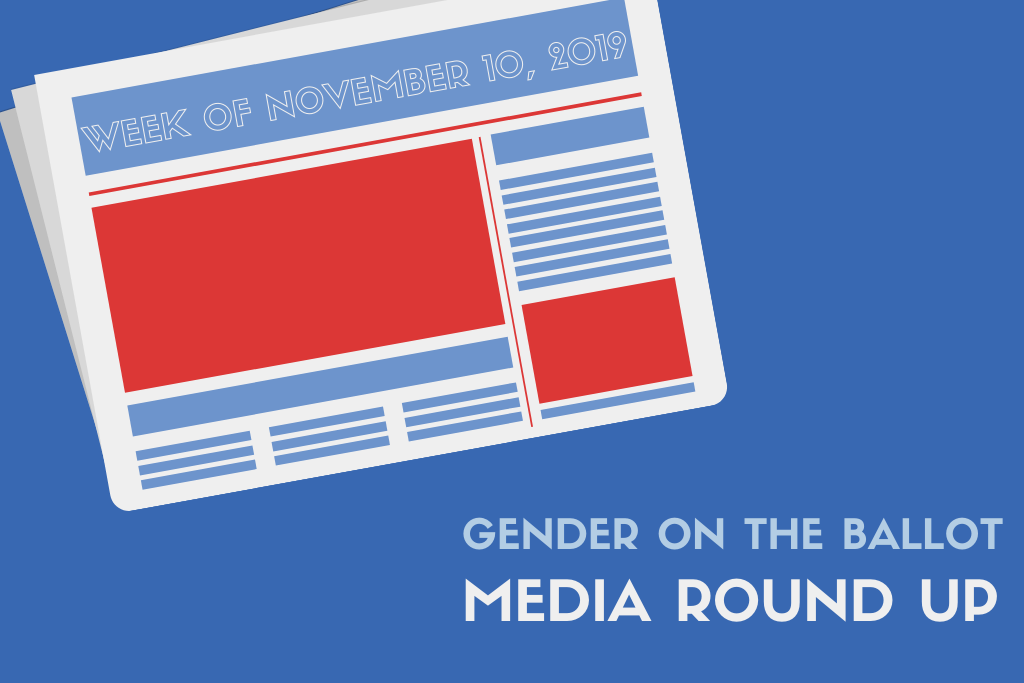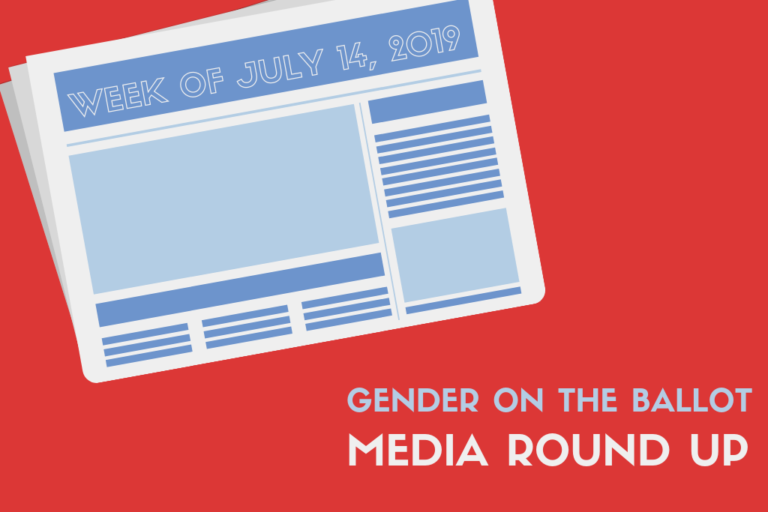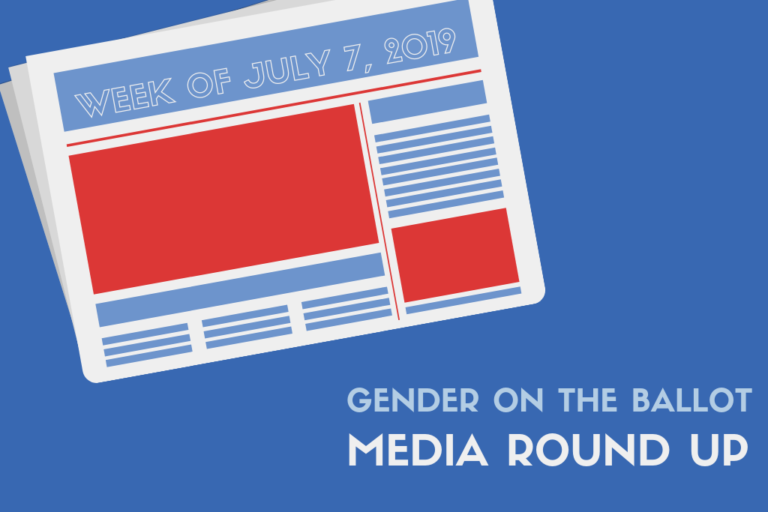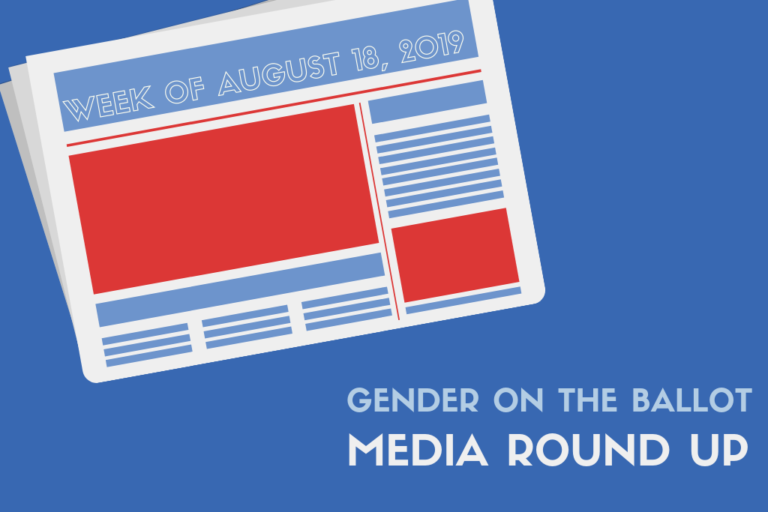Happy Friday! Welcome to our Media Round Up. Each week we’ll be collecting and…
Media Round Up: Week of November 10th

Happy Friday! Welcome to our Media Round Up. Each week we’re collecting and sharing our favorite gender + politics stories. Here’s what caught our eye this week:
Politics is finally a coed sport. So, what rules apply?
By Ruth Marcus, Washington Post
From likability and electability to exploitation online, we are at a unique point in American politics. As more and more women continue to enter the field, we must to begin to examine the systems that kept them out for so long, and the impact they continue to have on their campaigns. Ruth Marcus writes, “Gender is an ancient minefield with explosives still to be detected, much less defused.” In other words, it’s a whole new ballgame now.
You can read the full article here.
The Sexism Is Getting Sneakier
By Megan Garber, The Atlantic
Last week, Joe Biden came under fire for describing Elizabeth Warren as angry and elitist. Some saw his comments an example of the way gendered language is used to undermine women candidates. This week, the debate rages on. However, rather than focusing on what was said, Megan Garber is focusing on what wasn’t. Garber says that by the media framing these types of narratives as an open question—Was it sexist? —they open the lane for another unspoken question: “Is she likable?”
You can read the full article here.
House Democrats took a big step to get the Equal Rights Amendment moving again
By Li Zhou, Vox
Following the Democrats’ win in Virginia during last week’s elections (especially the women!), Virginia has the opportunity to become the 38th state to ratify the Equal Rights Amendment. It seems that they intend to follow through. This Wednesday, the Judiciary Committee passed a resolution to try to change the ratification deadline from 1982 to the present. Take a look to see the steps necessary for the ERA to get ratified and what that would mean for women in this country.
You can read the full article here.
Are most women who run for president unlikable? Asking is sexist, yet many voters agree.
By Jodi Enda, USA Today
Likability has always disproportionately affected women candidates, who must meet higher and often contradictory standards to fit voters’ ideas of how a woman candidate should be. While the way that likability impacts campaigns may be becoming more implicit, a New York Times/Siena College poll shows that it remains plenty obvious: 38% of potential voters agreed with the statement, “Sometimes, it feels like most women who run for president just aren’t that likable.” Really, most of them?
You can read the full article here.
Women Running for Office Have to Worry About One More Thing: Their Phones
By Isabella Grullón Paz, New York Times
Two weeks ago, Representative Katie Hill resigned following the publication of her private photos and details of her personal life. However, the consequences of her case are still being discussed as women try to navigate online harassment and the challenge of campaigning in a digital age. Ayah Zideyah, a fellow at IGNITE, says, “You don’t think that those kinds of things are going to be used against you…But I do think that now that sort of training has to be implemented.”
You can read the full article here.
Five stories not enough? Sign-up for the Women & Politics Institute’s weekly newsletter, the WeLead Reader.






